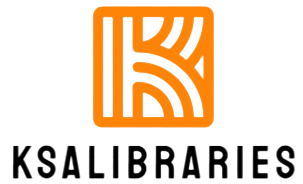The human brain, often hailed as the most complex organ in the body, holds within its intricate folds a secret that has captivated the pursuit of mental mastery for centuries—Nootropics. These cognitive enhancers, commonly known as smart drugs, are substances that claim to improve cognitive function, creativity, and motivation without causing significant side effects. The quest for mental excellence has led individuals to explore the vast landscape of Nootropics, seeking the key to unlocking the full potential of the brain. The allure of Nootropics lies in their promise to enhance various aspects of cognition, from memory and focus to creativity and problem-solving. The term Nootropic was coined by Romanian psychologist and chemist Dr. Corneliu E. Giurgea in the 1970s, who set out to develop substances that could enhance learning and memory without the adverse effects associated with traditional psychotropic drugs. Over the years, the Nootropic market has expanded, with a plethora of substances claiming to offer cognitive benefits.
One of the most well-known brain health Nootropics is caffeine, a stimulant found in coffee and tea. Caffeine enhances alertness and reduces the perception of effort, making it a favorite for those seeking a mental boost. Another popular Nootropic is modafinil, a prescription medication designed to treat narcolepsy, but often used off-label for its wakefulness-promoting effects. These substances, however, only scratch the surface of the vast array of Nootropics available. Natural compounds like ginkgo biloba, Bacopa monnieri, and Rhodiola rosea have also gained popularity for their purported cognitive-enhancing properties. These herbal Nootropics are believed to improve memory, reduce anxiety, and enhance overall brain function. The rise of synthetic Nootropics, such as race tams and noopept, has further fueled the interest in cognitive enhancement, with users reporting improved cognitive performance and heightened mental clarity.
Despite the growing fascination with Nootropics, their efficacy and safety remain subjects of debate within the scientific community. While some studies suggest potential cognitive benefits, the long-term effects and potential risks associated with Nootropic use are not fully understood. Additionally, the ethical implications of using cognitive enhancers to gain a competitive edge in academic or professional settings raise concerns about fairness and equality. In the pursuit of mental mastery, it is crucial to approach Nootropics with a balanced perspective, weighing potential benefits against potential risks. The brain’s best-kept secret may lie in understanding the delicate balance of cognitive enhancement and maintaining overall well-being. As research continues to unravel the mysteries of the brain and Nootropics, individuals seeking mental excellence must navigate the evolving landscape with caution and informed decision-making. The journey towards unlocking the brain’s full potential is an ongoing exploration, where science, ethics, and personal responsibility converge in the pursuit of mental mastery.
